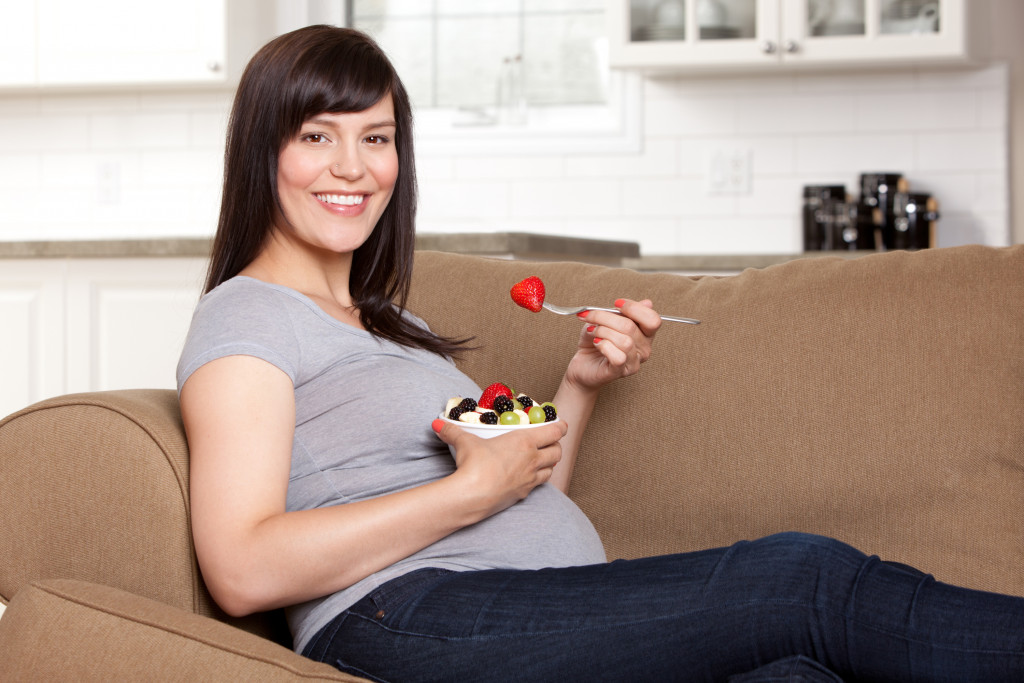- Diet directly influences female fertility by impacting hormone production, ovulation, and pregnancy chances.
- Macronutrients like proteins, fats, and carbohydrates affect fertility; excessive trans fats increase infertility risks.
- Vitamins and minerals, particularly folic acid, magnesium, and vitamin D, are crucial for reproductive health.
- Processed foods, excessive caffeine, and alcohol negatively impact fertility, while whole foods and lean proteins enhance it.
- Certain foods like grass-fed beef, berries, and pasture-raised eggs can boost fertility by providing essential nutrients.
Women are all too familiar with the pressure to maintain a healthy diet. You can be constantly bombarded with images of lean, fit bodies that look picture-perfect. But did you know that your diet can profoundly impact your reproductive system? Yes, you heard it right. What you eat can either enhance or hinder your ability to conceive a child. Here’s the relationship between your diet and your reproductive system, diets that can improve fertility and those that can hinder it.
Impact of Diet on the Reproductive System
The food you eat is essential for your overall health and plays a crucial role in maintaining the proper functioning of your reproductive system. A balanced and nutritious diet can provide the nutrients for healthy hormone production, ovulation, and pregnancy. On the other hand, an unhealthy diet lacking in essential nutrients can disrupt these processes, leading to infertility. Here are some of the ways your diet can impact your reproductive system:
1. Macronutrient Intake
One essential factor affecting reproductive health is the quantity and quality of macronutrients in your diet. Macronutrients refer to carbohydrates, fats, and proteins. Research has shown that women who consume excess saturated and trans fats are at a higher risk of infertility. Therefore, increasing the intake of monounsaturated and polyunsaturated fats, such as omega-3 fatty acids found in oily fish, can help improve your fertility.

2. Vitamins and Minerals
Certain vitamins and minerals, such as folic acid, magnesium, and vitamin D, are vital to fertility. Folic acid is crucial in the early stages of pregnancy as it helps to prevent neural tube defects in the fetus. Magnesium is known to help regulate hormone levels, which is necessary for conception and maintaining a healthy pregnancy. Vitamin D is also essential for maintaining a healthy reproductive system. To increase these vital nutrients in your diet, consider increasing your intake of dark leafy greens, beans, lentils, and whole grains.
3. Sugar and Processed Foods
Eating an excessive amount of sugary and processed foods has been linked to inflammation, insulin resistance, and obesity, which are all factors that can negatively impact fertility. A diet rich in whole plant foods, lean protein, and healthy fats like avocados, nuts, and seeds is best to improve your fertility.
4. Caffeine
While caffeine is a common dietary choice, it’s essential to be mindful of your consumption levels when trying to conceive. Studies have shown that having too much caffeine can interfere with ovulation and fertility. Limiting your caffeine intake to no more than 200mg a day is best to be safe.
5. Alcohol
Drinking excessive amounts of alcohol can potentially decrease fertility in women and men. It’s important to limit alcohol in your diet to improve your fertility. If you are trying to conceive, avoid drinking to increase your chances of conceiving.
Best Food to Boost Fertility
While there is no one “miracle food” that can guarantee conception, adding certain foods to your diet can improve fertility. These include:

Beef
One of the best sources of iron, beef is essential for fertility as it helps maintain a regular menstrual cycle and supports the growth of healthy eggs. However, don’t just eat any beef. It must be grass-fed. Grass-fed beef has been found to contain a higher level of omega-3 fatty acids, which can help improve fertility. You can buy grass-fed beef in online markets. You can look up discounts and coupons from sites like Raise.
Berries
Berries are rich in antioxidants, which can help to protect eggs and sperm from damage by free radicals. They are also a great source of vitamin C, which is essential for the development and maturation of eggs. Some of the best berries to include in your diet are blueberries, raspberries, and strawberries. You can add them to your breakfast oatmeal, smoothies, or salads.
Eggs
Eggs are a fantastic source of high-quality protein and essential nutrients like choline and vitamin D. They also contain essential amino acids that support ovulation and the production of healthy eggs. Make sure to choose pasture-raised eggs, as they have been found to contain higher levels of these beneficial nutrients compared to conventional eggs.
Your diet plays a pivotal role in your reproductive health and fertility. Consuming a balanced, nutrient-rich diet with lean proteins, healthy fats, and colorful fruits and vegetables can enhance your fertility and support a healthy pregnancy. While diet alone is not the only factor influencing fertility, it is an integral part of a balanced lifestyle that includes regular exercise and stress management. Remember, every person is unique, and what works for one may not work for another.


